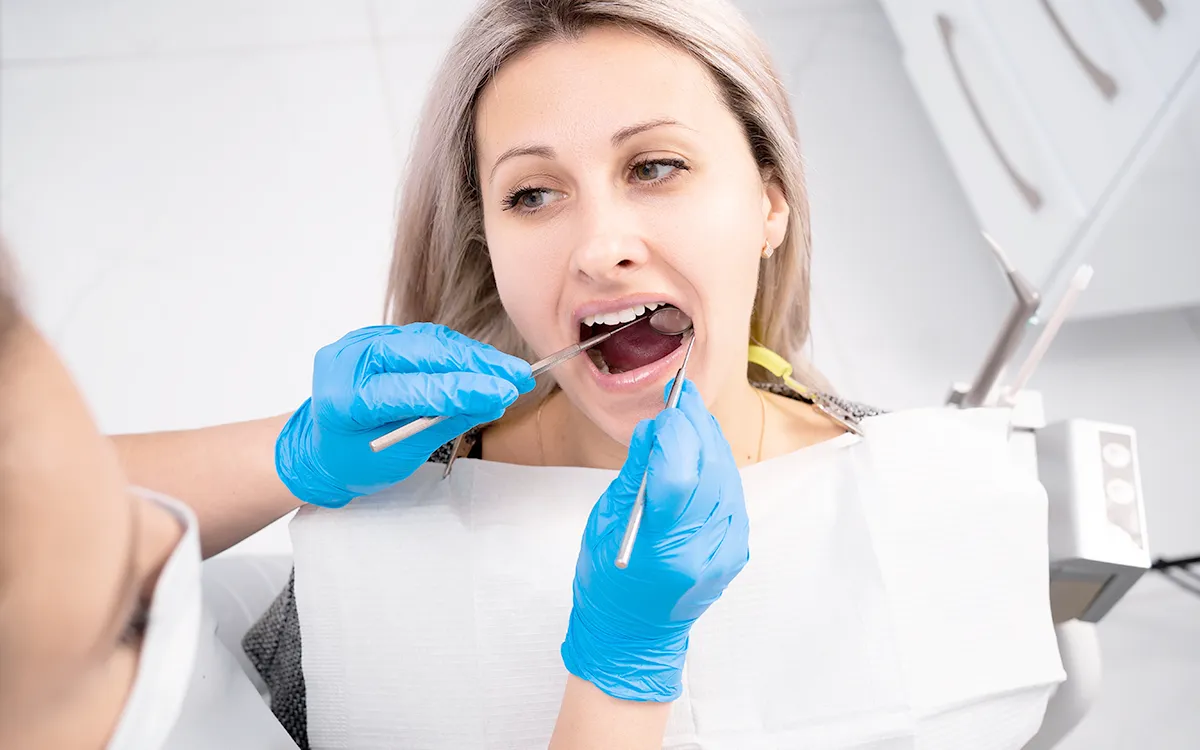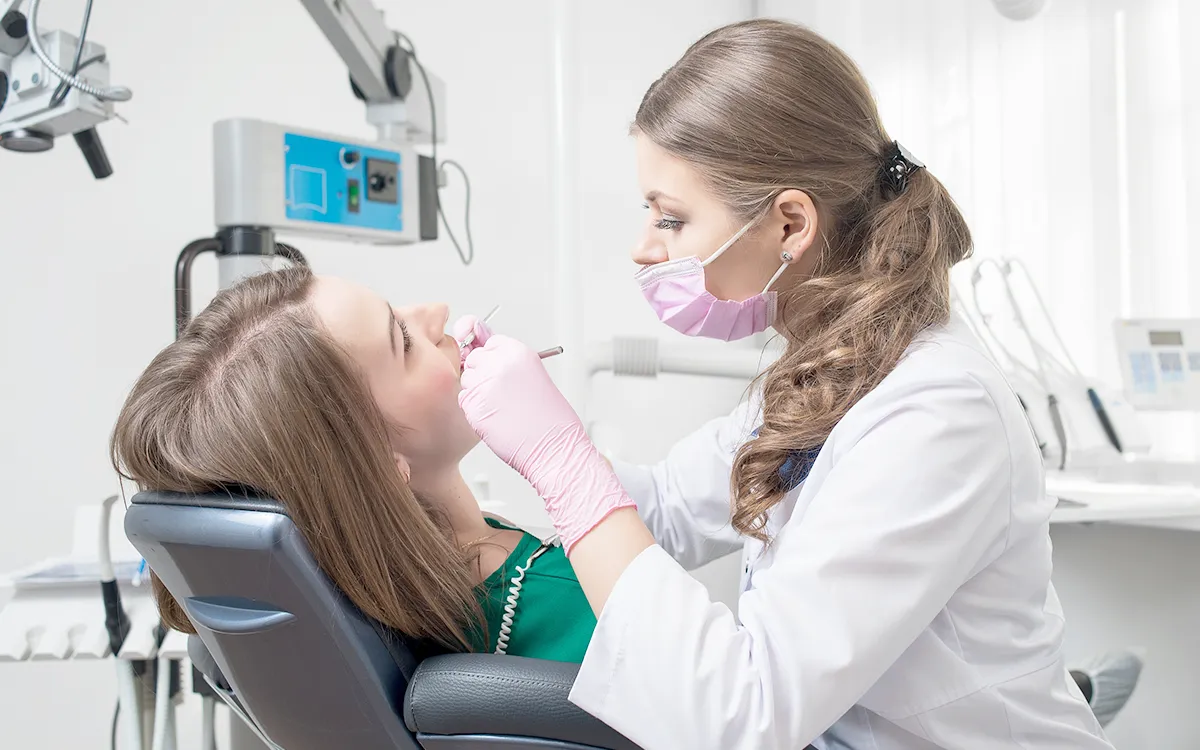You might not even realise you’re doing it, but your teeth could be fighting a nightly battle.
Teeth grinding, or bruxism, is a sneaky condition that often flies under the radar until it’s caused real, sometimes irreversible, damage. What starts as a subconscious clench during a stressful day or while you sleep can quietly wear down your teeth, disrupt your sleep, and trigger chronic pain in your jaw, head, and even neck.
It’s not just about a worn smile—it’s about your overall health and quality of life.
We’re uncovering the serious long-term effects of untreated teeth grinding and why early action could save you from major health issues in the future.
What is teeth grinding (bruxism)?
Teeth grinding—medically known as bruxism—is the involuntary clenching, grinding, or gnashing of teeth. It can happen while you’re fully awake and stressed (awake bruxism), or unconsciously during sleep (sleep bruxism). While occasional grinding might not seem harmful, frequent or chronic bruxism can lead to serious long-term damage to your teeth, jaw, and overall health.
Many people don’t even realise they grind their teeth—until a dentist spots the signs or troubling symptoms like jaw pain, headaches, or worn-down teeth begin to appear.

How common is bruxism?
It’s most common in young adults and tends to decrease with age. In children, sleep bruxism affects 3.5% to 40.6%, but usually lessens as they get older. There’s no major difference between males and females.
Bruxism is a common condition seen in both adults and children.
- Overall, it affects 8.0% to 31.4% of people.
- Awake bruxism: 22.1% to 31.0%
- Sleep bruxism: 9.7% to 15.9%
What causes teeth grinding?
Bruxism has multiple potential causes, and often it’s the result of a combination of physical, psychological, and lifestyle factors. Common contributors include:
- Chronic stress or anxiety
- Sleep disorders, such as obstructive sleep apnea
- Misaligned teeth or bite issues (malocclusion)
- High caffeine or alcohol intake
- Cigarette smoking or use of recreational drugs
- Side effects of certain medications
- Neurological conditions, such as Parkinson’s or Huntington’s disease
- Genetic predisposition
- Aggressive, competitive, or hyperactive personalities
- Poor sleeping habits
Understanding the root cause of your grinding is essential for effective treatment.
What can teeth grinding do to you?

Constant grinding wears down the protective enamel, leading to:
- Flattened, chipped, or fractured teeth
- Tooth sensitivity
- Increased risk of cavities and decay
- Premature ageing of your smile
Left untreated, it can result in the need for crowns, veneers, root canals, or even tooth extraction.
Bruxism doesn’t just hurt natural teeth—it can crack, dislodge, or wear down dental restorations such as:
- Fillings
- Veneers
- Crowns
- Bridges
This compromises their function and lifespan, often requiring costly repairs or replacements.
Grinding places immense pressure on the jaw joints and surrounding muscles. This can result in:
- Jaw pain or tenderness
- Difficulty opening and closing the mouth
- Clicking, popping, or locking of the jaw
- Chronic discomfort during chewing or speaking
TMJ disorders can become severely debilitating and lead to permanent joint damage if not managed early.
One of the most common signs of bruxism is waking up with tension headaches, often centred around the temples or behind the eyes. These occur due to overworked jaw muscles and may be accompanied by:
- Earaches
- Sore neck and shoulders
- Facial fatigue or pressure
These symptoms often mimic other health conditions, leading to delayed diagnosis and treatment.
Sleep bruxism can significantly reduce the quality of your rest. It often goes hand in hand with snoring or sleep apnoea and may lead to:
- Frequent night-time awakenings
- Daytime fatigue and drowsiness
- Poor focus and productivity
- Irritability, mood swings, or anxiety
Untreated bruxism doesn’t just damage your teeth—it disrupts your body’s ability to recover and function optimally.
Over time, excessive grinding can lead to:
- Gum recession—exposing sensitive roots
- Loose or shifting teeth
- Bone loss in the jaw
- Increased risk of tooth loss
These structural changes affect your bite, appearance, and long-term oral stability.
Beyond physical symptoms, untreated bruxism can take a toll emotionally:
- Embarrassment over worn or broken teeth
- Reduced self-confidence in social settings
- Financial stress from ongoing dental treatments
- Frustration and fatigue from chronic pain and sleep loss
Addressing bruxism isn’t just about dental health—it’s about restoring confidence and peace of mind.

How to know if you’re grinding your teeth
Watch for these signs that may indicate bruxism:
- Jaw soreness or tightness, especially in the morning
- Clicking or popping in the jaw
- Teeth that appear worn or flattened
- Increased tooth sensitivity
- Your partner hears you grinding at night
- Frequent headaches or earaches
If any of these sound familiar, consult your dentist for a comprehensive examination.
Effective treatment options
Fortunately, teeth grinding is manageable. Your dentist may recommend:
- Custom night guards or splints to protect your teeth during sleep
- Stress management strategies, such as mindfulness or counselling
- Bite correction or orthodontic adjustments
- Muscle relaxation therapies
- Dental repairs or restorations for any existing damage
- Referral to a sleep specialist, if apnoea or insomnia is suspected
- Early treatment prevents further damage and improves both oral and overall health.
Why you shouldn’t ignore teeth grinding
Teeth grinding might seem harmless at first—a little tension in the jaw, maybe some morning headaches. But bruxism is a slow-burning issue that, if left untreated, can snowball into a serious health concern. It silently wears down your teeth, strains your jaw joints, disrupts your sleep, and chips away at your confidence.
The longer you wait, the more extensive—and expensive—the treatment may become. Early intervention is key. It doesn’t just protect your smile; it helps preserve your daily comfort, mental wellbeing, and long-term health.

Don’t wait until the damage is done
Teeth don’t heal like skin. Once the damage is done, it won’t fix itself.
So if you’ve caught yourself clenching, waking up with a sore jaw, or your partner hears you grinding—listen to your body. It’s trying to tell you something. Tune in now. You can’t heal the damage naturally, but you can stop it from getting worse—and restore what’s been lost.
Talk to your dentist. Discover your path to relief from teeth grinding.



